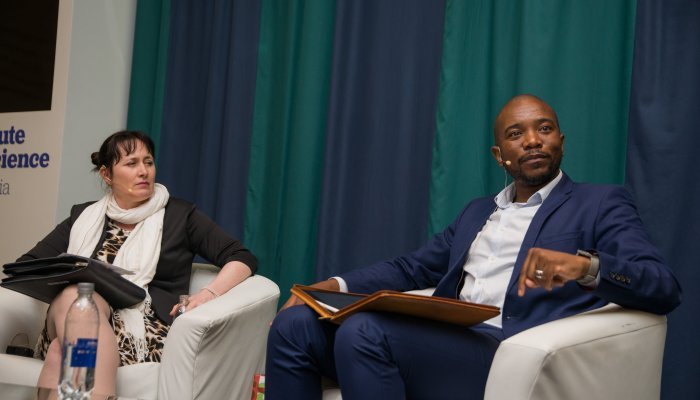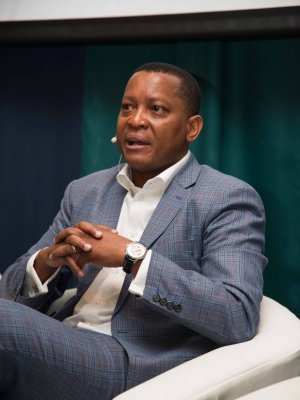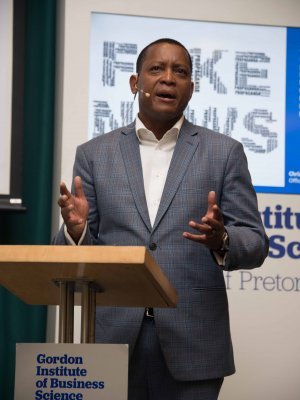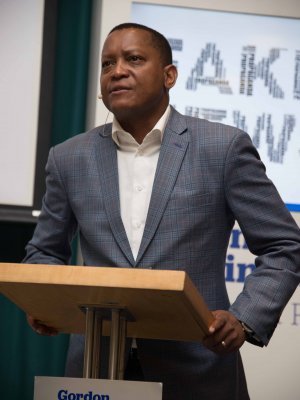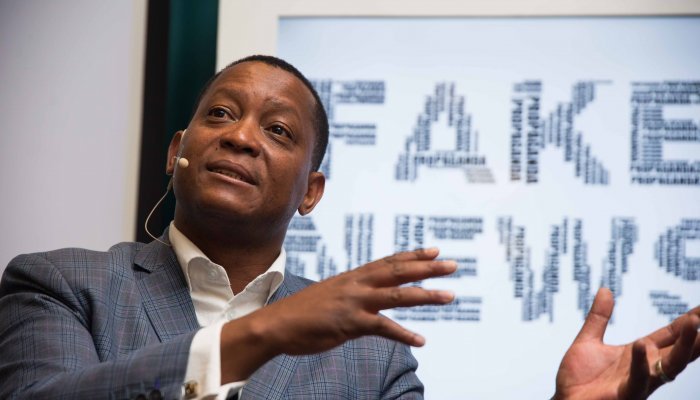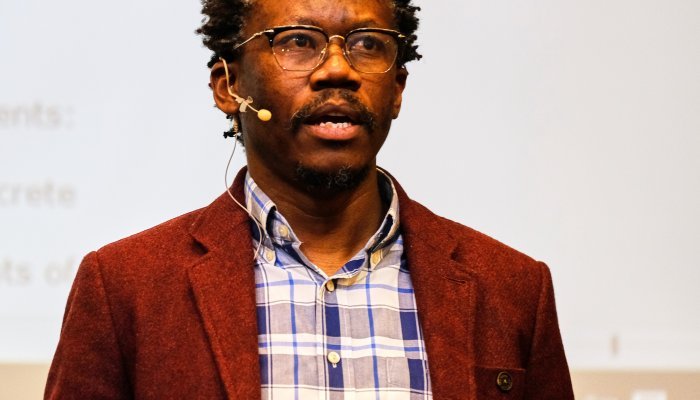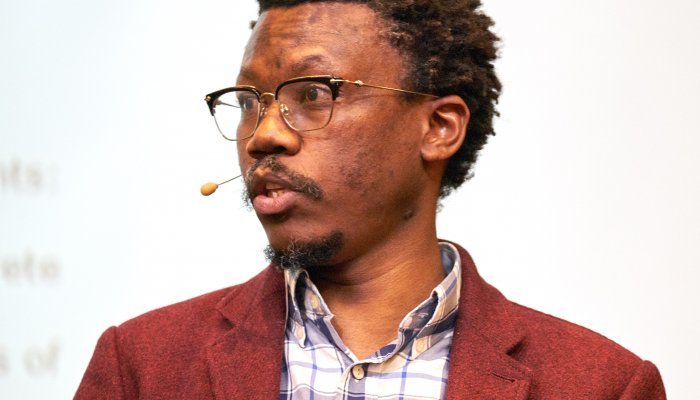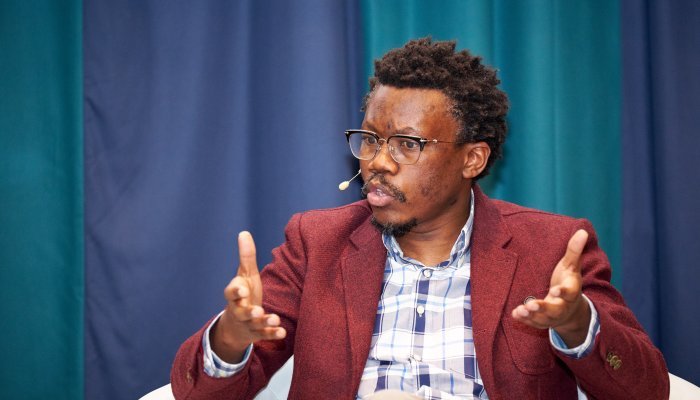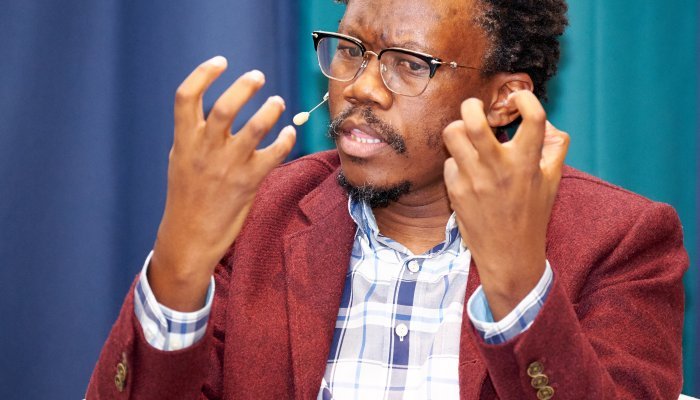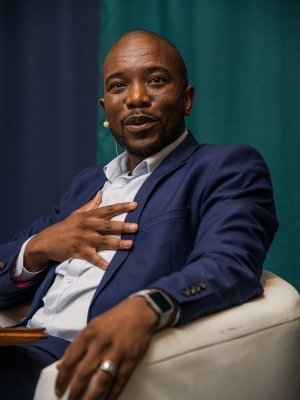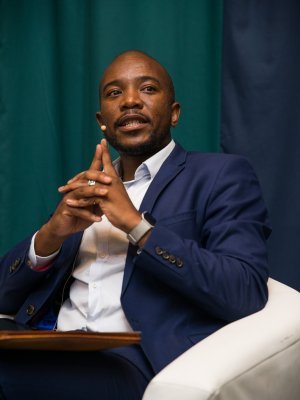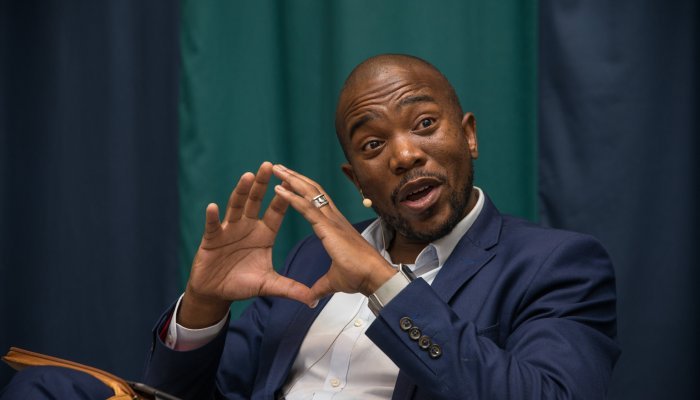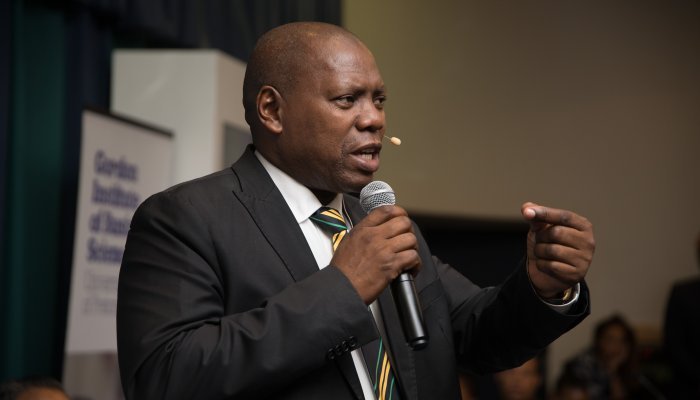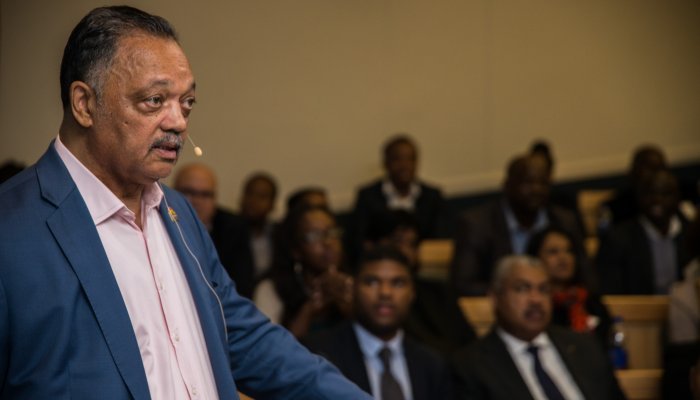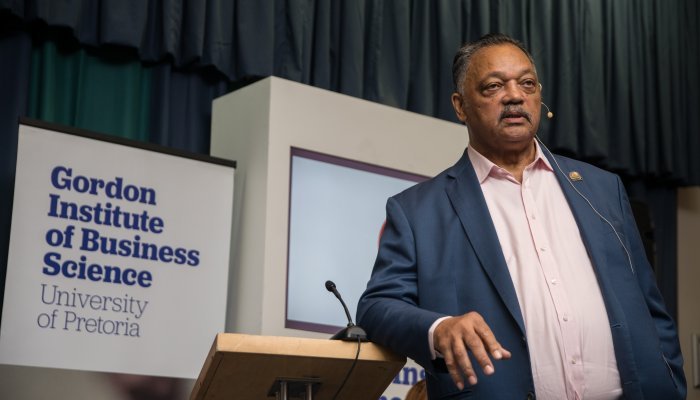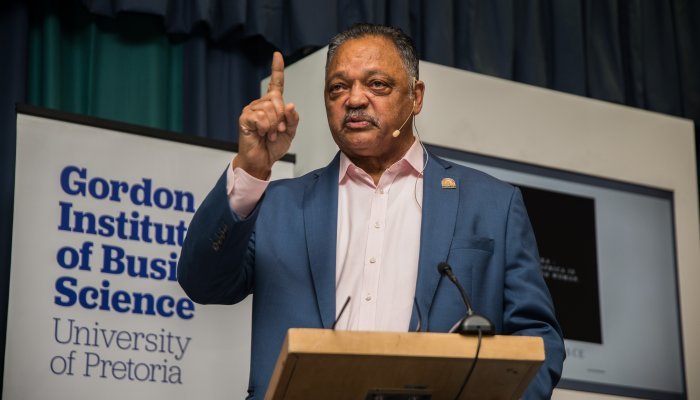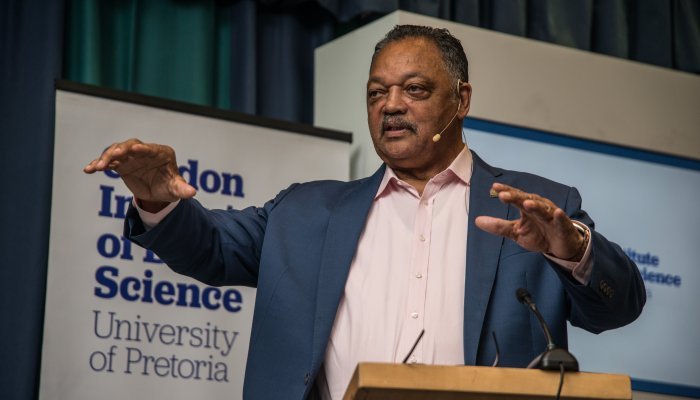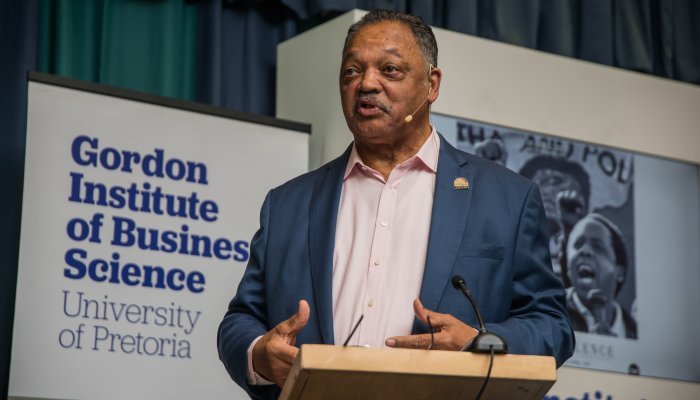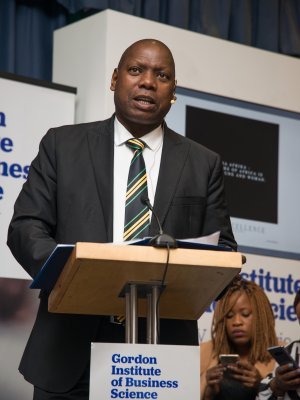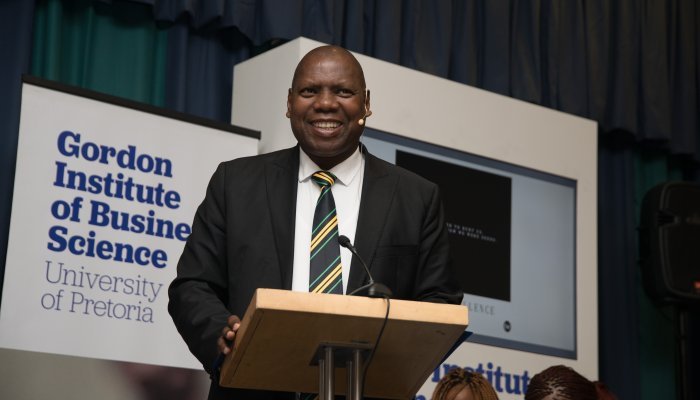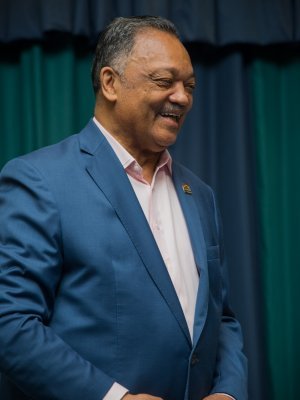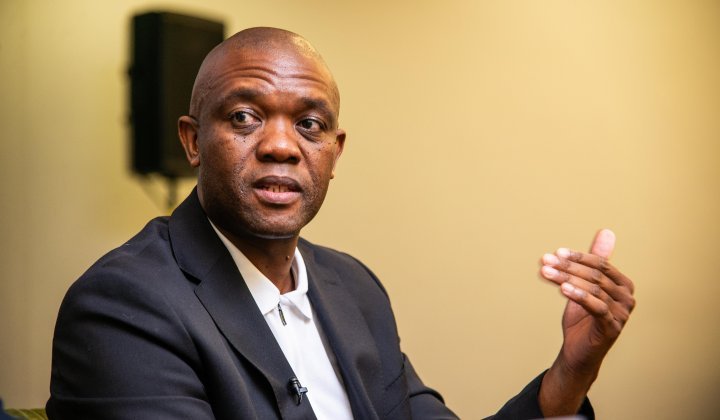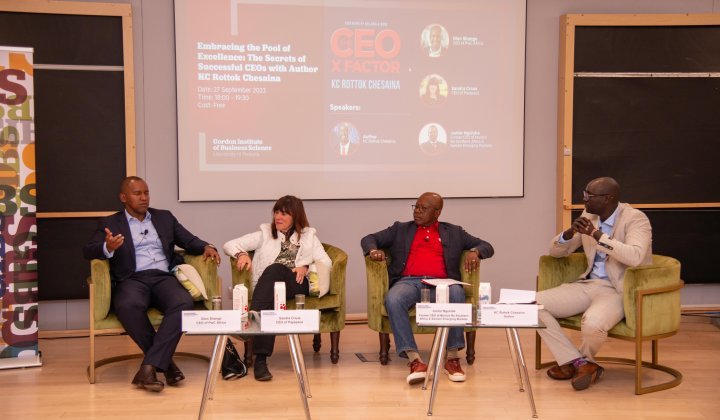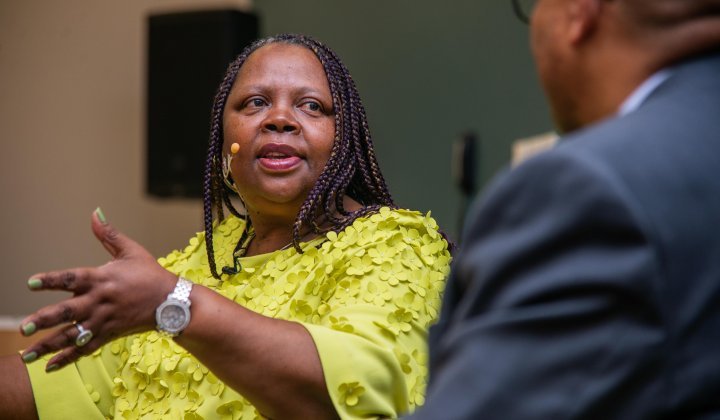Our regular look at GIBS’ events and guests
Free, but not equal
While the end of political apartheid, where people were separated by race, had been achieved, economic apartheid and a lack of access to economic opportunities still persisted, said Reverend Jesse Jackson, veteran US civil rights activist and political firebrand.
“We fought and won political apartheid, which gave us freedom. But it had almost nothing to do with economic resources,” Jackson told a GIBS Forum co-hosted by the Young Professionals Association and the Ikusasa Le Afrika Foundation (ILAF), adding that “The tools used to end political apartheid must now be used to end economic apartheid. We are free, but we are not equal.”
Defining the next stage of the struggle
Drawing parallels between the American Civil Rights Movement and the South African struggle for freedom, Jackson, visiting South Africa for the funeral of Winnie Madikizela-Mandela, said the next stage of the struggle must allow for access to capital, industry and technology. “Our segregation struggles have ended, but we are denied access to capital, banks, insurance, access to university and ownership of the mass media. In the last struggle, freedom was not the goal; but we had to be free in order to get equal. But now, whites are richer, and blacks are free.”
The next level of the struggle needs to be defined
“The playing field, whether it be access to capital, banking or international trade, is not equal. While the race separation battle has been fought and won; the battle of resource separation has not been fought,” said Tebogo Moalusi, chairperson of the Young Professionals Association. He told the gathering that South Africa was on the cusp of a movement of black excellence: “Young people must take their place at the table where decisions are made. We must make black excellence an obsession until wealth creation, access to jobs and opportunities for black people become a reality.”
Economic emancipation in South Africa
South Africa had recently lost a number of leaders from the struggle who embodied the ideals of black excellence, Dr. Zweli Mkhize, Minister of Cooperative Governance and Traditional Affairs and the Chair of ILAF, told the forum.
“We must draw inspiration from Mama Winnie, who defended the capacity of black people to think for themselves and to be determined. We must thus be inspired by her memory when we speak of black excellence,” he said.
Despite the system of Bantu Education, South Africa had produced a significant number of highly qualified black professionals. The growth of the black middle class is part of the strategy to transform South Africa and to drive economic transformation, Mkhize explained.
However, the country was still far from reaching its goals: “The pace of transformation of the economy is still too slow, and the skewed nature of ownership and leadership patterns need to be corrected. It is not sustainable if the majority of our people are excluded from the economy,” Mkhize said.
He explained that many obstacles prevented black professionals and businesses from entering and participating in the mainstream economy. “Often, being black means you have to be better to be equal. Corporate South Africa remains an impenetrable fortress where black-owned firms struggle to get meaningful contracts. Until these networks are dismantled and the subtle barriers are removed, we won’t be able to transform the economy. We need to see black excellence shining.”
This Land Is Ours
With land reform high on the political agenda, guests packed into GIBS main auditorium in May to hear the views of Advocate Tembeka Ngcukaitobi, lawyer, author and political activist, whose book, This Land Is Ours, has been critically acclaimed.
Flanked by Land Bank CEO T.P. Nchocho and joined via video link by another land expert, Professor Ruth Hall, Ngcukaitobi’s central thesis was that black South Africans are living as though apartheid is still in existence.
“Part of the problem I have with South Africa today is denialism,” said Ngcukaitobi, “denialism of black pain and denialism of the occupation of South African land by white colonists and the replication of that pain, not only over time, but also over generations, so today, we are, in a sense, still living according to the construct of the Empire, to the construct of the colony, the construct of the total control and domination of wealth over the black body. We are still living as imagined by Europe. So, the past is not really the past; the past continues to live with us, not in abstract ways, or philosophical or intellectual ways, but in practical ways because access to property is still largely determined by race in the South African context, whether one talks ‘property’ as in access to the Stock Exchange or ‘property’ as in access to a basic commodity like land. The fact of the matter is that those are still largely determined according to one’s race.
“The laws, of course, have changed but we must recall that the change of the laws takes place in a rigid socioeconomic environment that still makes it difficult for people like my mother and my grandmother to access basic necessities of living, in the open market.
“If we want a serious discussion about land reform, we should probably get out of the denialism of black pain and the denialism of black dispossession and recognise that the constitutional framework was itself intended as an instrument for the liberation of the African people over the colonial framework…I see the Constitution as an instrument for socio-economic transformation,” he said.
GIBS again in Global Top 50 for executive education
GIBS has once again been ranked among the world’s 50 best business schools by the esteemed UK Financial Times in its 2018 Executive Education ranking. This is the 15th year that GIBS has been ranked in this annual ranking which covers both customised programmes which are tailor-made for corporate customers and open programmes designed for leadership within organisations.
A number of parameters are used to compile this ranking which is based on the satisfaction levels of corporate clients and individual participants. With a combined ranking of 42, GIBS continues to hold its own as the leading African business school in this highly competitive space, on par with the world’s premier business schools such as London, MIT Sloan and Stanford.
GIBS Dean, Professor Nicola Kleyn said, “This ranking amplifies that GIBS is indeed a global centre of excellence that offers state-of-the-art education. A collective effort from our faculty and programme execution team ensures that we keep delivering value to our clients.”
The ranking looks at the best 90 business schools offering customised programmes and the best 75 offering open-enrolment programmes worldwide and highlights the quality and suitability of the programmes and teaching excellence.
Lerato Mahlasela, director: Custom Programmes at GIBS said, “We work hard to ensure we deliver quality programmes that are in line with our customer needs. This ranking is a clear indication that our executive education programmes are in line with market expectations.”
Nishan Pillay, director: Open Programmes at GIBS, said “GIBS benchmarks itself against top business schools across the world and this ranking is testament to the quality produced at GIBS from design through to delivery.”
Hope for the majority
Democratic Alliance (DA) Federal Leader Mmusi Maimane believes his party should not only speak about change, but also offer hope to the majority of South Africans.
He expressed the expectation that South Africa is entering a critical phase where politics will move away from personalities to rather focus on policies that can grow the economy.
“The discussion missing from South Africa today is the discussion about our future. What is our tomorrow? What is our dream?” he asked a recent GIBS Forum. “The choice in the next election is stark: between a patronage organisation, and an open organisation which is driven by hope and change.”
The country must move away from the divisive rhetoric of the liberation movement and towards a phase of constitutional democracy, he added.
Economic policy and land reform
South Africa must agree on how the economy is to be structured, Maimane said. The DA’s major task is now to ultimately shift its constituency to the poor and unemployed living below the poverty line in order to “become the party for those who are left behind. I am doubtful that we invest enough into the sense of anger of those who are left out,” he said.
The party’s economic policy believes the state must be the employer of last resort and focuses on city-led economic growth. De-concentrating and de-monopolising the economy are key to breaking down the ‘two nations’ narrative he said.
“It is an injustice that a government that still has nine million unemployed people, killed people in Marikana and allowed the Life Esidimeni tragedy to occur, can continue to claim legitimacy as a government that cares about poor people.”
While Maimane said he believed South Africa’s political future lay in coalitions, he cautioned that coalition politics is hard work, as “not every party is interested in government. It is hard work to govern, you have to deliver and be accountable to citizens.”
He said the DA was able to be in coalition with the EFF in a number of metros as they both “agree that South Africa needs change.”
No ministerial interference at SABC
With an allusion to the deep political interference of previous years, was the newly appointed Minister of Communications, Nomvula Mokonyane, also throwing her weight around in a negative way at the SABC?
That was the pointed question from a delegate at the recent GIBS Conference on High Impact Strategic Communications and Reputation Management to another recent appointment, Chris Maroleng, Chief Operations Officer at the giant broadcaster.
Maroleng was quick to say that he did not speak for Mokonyane, “but what I can say is that to date there has been no negative interference on her part… I can speak on record today and say that there has been no attempt to interfere with the independence [of the SABC] by our minister. In actual fact, it’s been the opposite: in our most recent meeting with her, discussions were held about the financial position of the SABC and how the SABC can begin funding… let’s call it its “unfunded mandate”.
Maroleng explained that the SABC was duty-bound to cover a number of things deemed to be of national importance – certain events and sports, for example – “but that mandate has not been funded for the longest period of time.”
Recent discussions with the SABC, said Maroleng, “were centred around this and if you have tracked the conversations we’ve been having with the Portfolio Committee in Parliament recently, as we gave presentations to this committee about the financial position of the SABC, what we can do to turn it around and restore that sustainability – not around how they can manipulate elections. And I’m not saying this as a fake news, post-truth guy, I’m saying this as a guy who is telling the truth about what is happening.”


